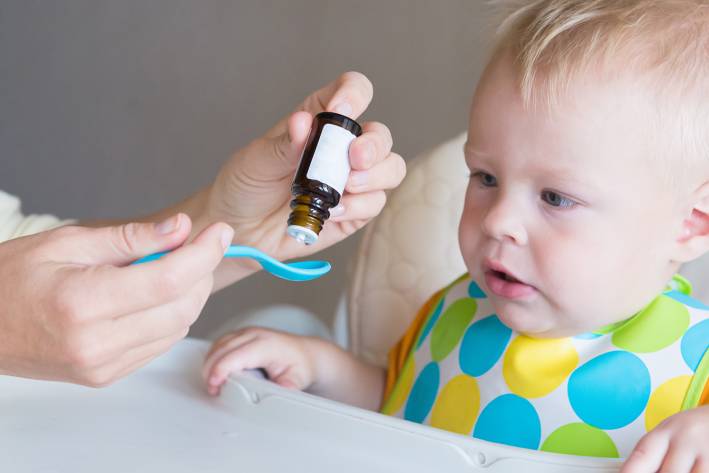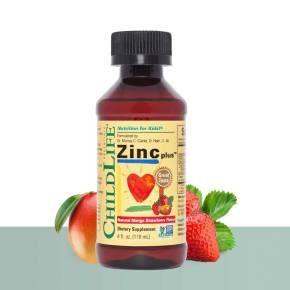Young children have many nutritional needs to grow and develop appropriately. Since infancy and throughout childhood, the body requires a variety of key nutrients to support constant growth and transition. One of these nutrients is the element zinc.
What is Zinc, and What Does It Do?
Zinc is an essential micronutrient for many living organisms including plants, animals, and humans. Interestingly, zinc is also the second most prevalent metal in the human body after iron and the only metal found in all types of enzymes.
The abundance of zinc within the body shows just how this element is extremely involved with a diversity of important biological functions to maintain human health.
Not only does zinc handily contribute to the structure and function of enzymes, but it also serves as a cofactor—or “helper molecule”—for an incredible quantity of more than 300 enzymes and 100 transcription factors. Additional biological processes that zinc helps with include: DNA, RNA, and protein synthesis; regulation of pituitary hormones; and cell division and proliferation—processes that all heavily influence childhood growth and development.
How is Zinc Important for Children?
Children face the greatest risk of zinc inadequacy due to increased zinc requirements during rapid periods of growth.
Benefits of Zinc
Zinc is involved with critical physiological functions from infancy to beyond, including:
-
Cognitive and motor development
- Zinc plays a role in synaptic plasticity and in learning and can modulate brain excitability.
- Zinc supplementation improved neuropsychological functions among children aged 6 to 9 years old.
- Zinc supplementation is associated with better motor development in very-low-birth-weight infants.
- Infants who took zinc supplementation are more likely to engage in physically vigorous activities (e.g., running).
-
Immune health
- Zinc helps maintain skin and mucosal membrane integrity, which is important for wound healing.
- Zinc has antioxidant effects to protect against damage from reactive oxygen species and reactive nitrogen species.
- Zinc lozenges help speed recovery from the common cold and reduce its duration.
- When given to individuals having low levels of zinc, zinc supplementation increases the number of T-cell lymphocytes, improving the body’s ability to fight off pathogens.
How Much Zinc Should Infants and Children Take?
According to the Food and Nutrition Board at the Institute of Medicine of the National Academies (formerly National Academy of Sciences), infants and children should consume the recommended daily intake (RDI) of zinc to meet their nutrient requirements. Below is a table listing the average RDI of zinc in milligrams (mg) which varies across age.
| Age | RDI of Zinc |
|---|---|
| Infants 0 to 12 months | 3 mg |
| Children 1 to 3 years | 3 mg |
| Children 4+ years | 11 mg |
Dangers of Excessive Zinc
Taking more zinc than the recommended amount may pose a danger to the child’s health since excessive zinc may suppress copper and iron absorption.
Side effects of excessive zinc intake may include:
- nausea
- vomiting
- loss of appetite
- diarrhea
- headaches
Due to the severity of these side effects, it’s important to understand your children’s dietary needs very clearly and thoroughly to ensure they only receive safe amounts of zinc.
Where Can You Find Zinc?
Zinc can be found naturally in a wide variety of foods, such as:
- meats
- beef
- pork
- chicken
- seafoods
- lobster
- oysters
- grains
- fortified breakfast cereal
- oatmeal
- dairy
- yogurt
- cheese
- milk
- seeds
- nuts
- peas
Surprisingly, oysters contain the greatest amount of zinc, offering a whopping 74 mg per serving!
Overall, ensuring your children receive the recommended amounts of zinc can ultimately promote a wide range of benefits for healthy growth and development.



